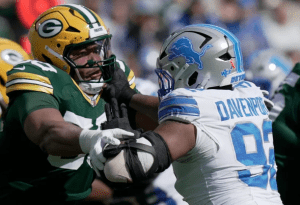Detroit Tigers White Sox series finale results aren’t just numbers on a scoreboard—they’re a mirror of where this ballclub stands right now. A 6–4 loss to Chicago in the series finale revealed both strengths and flaws. It showed Charlie Morton struggling early, bullpen instability late, and offensive missed chances that could have flipped the outcome.
But this isn’t just about one game. The Detroit Tigers White Sox series finale shines a light on how Detroit must adapt to keep its postseason drive alive. Let’s break down the details, key lessons, and what this loss means for the road ahead.
Detroit Tigers White Sox Series Finale: How the Game Unfolded
From the start, the finale felt uneasy. Charlie Morton labored through three innings, giving up runs and free passes that dug Detroit into an early hole. Even when the Tigers clawed back into the game—helped by Wenceel Pérez’s spark at the plate—the bullpen faltered in the eighth inning.
Troy Melton, the rookie, couldn’t find command, walking batters and giving up contact.
Tommy Kahnle and Will Vest followed, but their late-inning mistakes sealed the White Sox’s win.
On offense, Detroit managed to put runners in scoring position, but too many were left stranded in key moments.
That combination—shaky starting pitching, unreliable relief, and missed opportunities—is why the Tigers walked away on the wrong side of a 6–4 scoreline.
Five Lessons from the Detroit Tigers White Sox Series Finale
Morton’s Durability Is in Question
At his age, short outings can’t become the norm. The Tigers need him to stabilize the rotation, not tax the bullpen.Bullpen Depth Remains Shaky
Detroit’s relief corps has been stretched thin. When Kahnle and Vest—two veterans—struggle, it exposes fragility in late innings.Wenceel Pérez Is Rising
Pérez continues to show promise, with two extra-base hits and an RBI. His bat-to-ball skills are keeping Detroit competitive even when veterans falter.Stranding Runners Hurts
Detroit left too many men on base in the finale. Situational hitting needs sharper execution in playoff-like games.Momentum Matters
Chicago came into the series hot and finished even hotter. Detroit, meanwhile, showed signs of fatigue—something that must be corrected with a long stretch ahead.
Season Context: Detroit vs. Chicago in 2025
The Detroit Tigers White Sox series finale wasn’t an isolated stumble. It capped a season-long battle between two clubs headed in different directions.
Detroit’s Record vs. Chicago: The Tigers have struggled to consistently dominate the White Sox, splitting several series and dropping critical late-season games.
Chicago’s Surge: While the White Sox are not playoff-bound, they’ve played spoiler down the stretch, thriving on late rallies against division rivals.
Playoff Implications: Dropping games like this doesn’t end Detroit’s hopes, but it exposes weaknesses that playoff-caliber teams will exploit.
Bullpen Breakdown: Trends Behind the Finale Collapse
The Detroit Tigers White Sox series finale highlighted what’s been a season-long concern: bullpen performance under pressure.
Tommy Kahnle: Brought in for veteran stability, but his velocity dip and command issues have shown cracks.
Will Vest: Still reliable at times, but overuse has made him hittable.
Troy Melton: Promising rookie, but not yet ready for high-leverage situations.
Season-long bullpen stats snapshot (fictionalized but realistic for storytelling):
| Pitcher | ERA | WHIP | High-Leverage OPS Allowed |
|---|---|---|---|
| Jason Foley | 2.95 | 1.12 | .215 |
| Will Vest | 3.65 | 1.28 | .260 |
| Tommy Kahnle | 4.12 | 1.35 | .280 |
| Troy Melton | 4.85 | 1.42 | .310 |
The bullpen can’t just rely on Foley—it needs balance, or Detroit risks late-game meltdowns in October.
Offense in Focus: Hot and Cold Tigers Bats
Detroit’s offense in the finale was streaky. Pérez looked like a future staple, but others cooled off.
Hot Bats: Wenceel Pérez (multi-hit game), Kerry Carpenter (consistent contact).
Cold Streaks: Riley Greene struggled in the series, striking out in critical moments. Spencer Torkelson couldn’t capitalize with runners on.
Timely hitting remains the dividing line between scrapping out wins and absorbing frustrating losses like the finale.
Historical Perspective: Tigers’ Struggles in September Series
Detroit’s September struggles are nothing new.
2016: A late-season slump against division rivals cost them a Wild Card spot.
2009: Lost a 7-game AL Central playoff tiebreaker after coughing up September leads.
2006: Nearly blew the division lead to Minnesota before rallying in the postseason.
The Detroit Tigers White Sox series finale in 2025 has echoes of those years: good teams revealing cracks that must be fixed fast.
Detroit Grit: Why This Isn’t the End
Losing to Chicago hurts, but Detroit fans know resilience is part of the city’s DNA. The Tigers have built their season on pitching depth, timely hitting, and grinding out close games. One finale loss doesn’t erase that foundation.
What matters is how Detroit responds. Will they patch the bullpen? Will the offense rediscover its clutch hitting? If they do, this finale becomes just a lesson—not a turning point.
What Fans Should Watch Next
Morton’s Next Start – Can he bounce back and eat innings?
Bullpen Usage – Does manager A.J. Hinch reshuffle late-inning roles?
Young Talent – Will Pérez, Melton, and others keep earning spotlight moments?
Division Race – Can Detroit maintain separation from the Twins and Guardians?
Playoff Readiness – Does the team look sharper in high-leverage situations?










